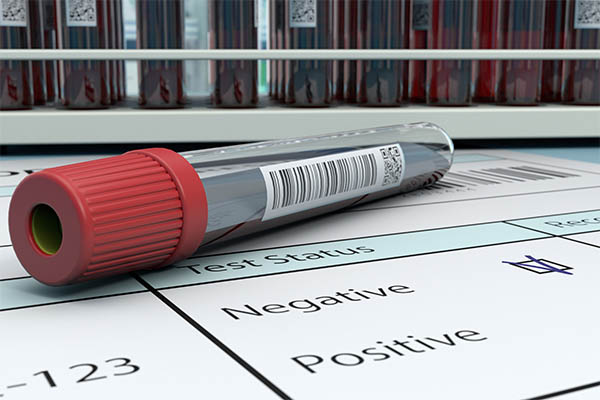
You may have seen online ads touting blood tests they claim can detect cancer before it spreads, without having to consult a doctor. These ads often encourage you to ‘take control’ of your health by buying and taking the test yourself.
It certainly sounds appealing. Cancer is scary, after all, and detecting it early can increase your treatment options and improve your chances of survival.
But do these direct-to-consumer (DTC) cancer marker tests live up to their promises? The short answer is no, not yet.
How cancer marker tests work
Cancer marker tests scan the blood for proteins and other ‘biomarkers’ that are associated with certain cancers. Doctors may order these tests for their patients to help diagnose some cancers, assist in treatment decisions, and monitor response to treatment.
Cancer marker tests are ordered based on a range of factors, and only after consultation and careful consideration of a patient’s medical history and cancer risk. They are almost always used alongside other diagnostic and monitoring tests because doctors can’t diagnose cancers using cancer marker tests alone. They tend to produce high false-positive and false-negative results, particularly for less common cancers.
So, cancer marker tests are only helpful when used with other diagnostic tests to detect and confirm disease. There is no evidence yet to support their use as a population-wide screening tool to prevent cancer.
Australia’s Therapeutic Goods Administration (TGA), which assesses the safety and performance of medical products and devices such as cancer marker tests, has not provided regulatory approval for the supply of any DTC cancer test in Australia, except for self-tests as part of National Cancer Screening Programs.
Concerns with DTC cancer marker test
There are several other concerns with DTC cancer marker tests that make them inappropriate for use by the general public without consultation with doctors.
For one, there is no medical expert involved to advise people about whether a test is appropriate, or to discuss the results. Test results may be unclear or inaccurate so people visit their GP anyway for follow-up which may mean further testing and monitoring, resulting in additional unnecessary costs for the person and the health system. Even worse, unclear or inaccurate test results may cause people to avoid getting medical attention when they actually need it.
There are concerns that people are not being given enough clear and accurate information about DTC tests to make an informed decision about whether to buy and take the test. There are also concerns about the quality of DTC cancer marker tests, how DTC test companies are protecting consumer data, and whether it is being sold on to third parties.
Put simply, there is no evidence that DTC cancer marker tests are at present a useful way for the general public to screen for and prevent cancer. While researchers are working on developing safer and more accurate cancer marker tests in the future, the companies currently selling DTC cancer maker tests are often overstating their benefits and understating their risks. They aren’t the miracle tests they are often claimed to be.
What you should do
It’s important to be proactive and engaged in your health and healthcare, but it’s equally important to spend your time (and money) on trusted, evidence-based prevention options.
If you have any concerns about cancer and your cancer risk, speak to your doctor.
You could also participate in National Cancer Screening Programs for breast, bowel and cervical cancer, if you’re eligible. These evidence-based, government funded screening programs will provide you with the information, support and follow-up you may need and are part of what is considered best cancer for these types of cancers. For example, the National Bowel Cancer Screening Program for people aged 50-74, run in conjunction with Cancer Council, is a free do-it-yourself test kit that comes with credible information about the test, an explanation of bowel cancer screen results and what to do next.
Information and support is also available through Cancer Council’s 13 11 20 nurses, who are trained to answer your questions about cancer and offer emotional and practical support.
This article was written by the McCabe Centre for Law & Cancer. More information about appropriate diagnostic testing is available from the Royal Australian College of General Practitioners.